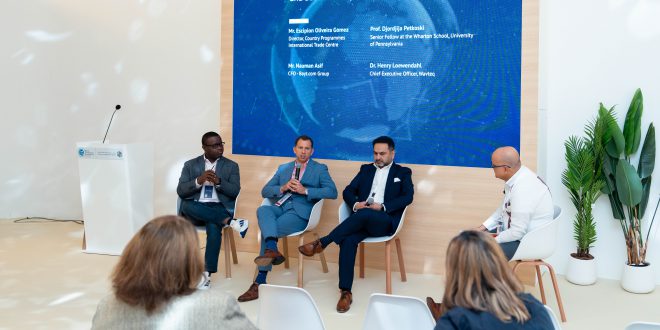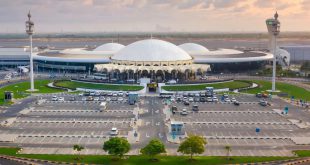At the eighth edition of the Sharjah Investment Forum (SIF), investment professionals stressed that artificial intelligence (AI) and sustainability are now intertwined forces reshaping capital-flows, value-chains and long-term prosperity. Speaking during the panel “The Impact of AI and Sustainability on Investment Decisions”, the panellists laid out data and practical insights for investors, promoters and governments alike.
According to Waveteq Chief Executive Officer Dr Henry Loewendahl, AI-related foreign direct investment (FDI) has exploded: in 2023 it accounted for approximately 6-7% of global FDI flows, rising to around 12% in 2024 and already hitting 22% in 2025. Dr Loewendahl projected that by 2029 global infrastructure investment in AI will hit $1.2 trillion, reflecting the vast scope of data-centres, chip-supply-chains, energy and water infrastructure.
He further noted that currently around 85% of global data-centre capex is located in the US (50%) and China (35%), while regions such as Africa are only just beginning to catch up. There are about 700 data-centre sites needing development across the continent.
From efficiency to ESG: Investment strategies under evolution
Nauman Asif, Group CFO, bayt.com, described how his HR-technology business, which is managing a database of some 50 million job-seekers globally, is deploying AI not only for efficiency but also to deliver sustainable workforce-outcomes and socially responsible investment. “We are redefining RoI,” he said. “It’s no longer simply a financial return, it is about the long-term sustainable impact of your investment that is now commanding attention.”
He emphasised that AI must enable the workforce rather than simply replace it, and that ESG metrics are increasingly embedded into technology investment strategies. At the same time, Asif cautioned that data-privacy, bias and oversight remain critical guardrails for deploying AI systems responsibly.
Emerging markets: The infrastructure and policy gap
Representing the West African Development Bank, Kofi Joseph highlighted the structural challenge in the region. Although West Africa is home to an innovative community (apps in Senegal built for fishermen markets, for instance), the region still grapples with electricity shortages, data-infrastructure, policy frameworks and digital-readiness. He urged public institutions to assist in creating domesticised AI-platforms tailored to local socio-economic goals, rather than simply importing mature technology.
Investment-promotion agencies (IPAs): A new play-book
Dr Loewendahl urged IPAs to act now. “You should not just wait and see. Start piloting AI performance in your operations, look at where it can add value and increase efficiency,” he said. He described how his firm supplemented its in-house research team with AI-integration, and gave examples of how websites for investment-promotion in West Africa could be fully revamped in days rather than months.
He also emphasised that AI should be seen as an assistant to human investment-promotion officers, and not a replacement. Asif echoed that view and said, “AI is certainly an enabler … but the ethical guardrails must be in place and you cannot lose sight of the long-term view and ESG.” Joseph concluded with three pivotal words for IPAs: “Responsible use, legal compliance, ethical oversight.”
Dr Loewendahl also noted that while clean tech remains vital, the slowdown of clean-tech FDI (which had plateaued after 2023) is less about market de-prioritisation and more about geo-political headwinds, which halved clean-tech projects in the US owing to subsidy withdrawal and Chinese renewable-investment being blocked in Europe. He argued that AI is benefiting from the confluence of technology-growth and geopolitics.
For companies, governments and investors operating in the Gulf and globally, the message is truly that AI is no longer a niche bet. It is shaping where capital flows, how infrastructure is built, and which economies win. The panel emphasised success will come not simply from deploying algorithms, but from aligning them with sustainable value-creation, people-centred strategies and resilient institutions.
The eighth edition of the Sharjah Investment Forum, which was held alongside the World Investment Conference for the first time, hosted more than 160 sessions over two days, featuring 95 speakers, and 10,000 participants across two days.






